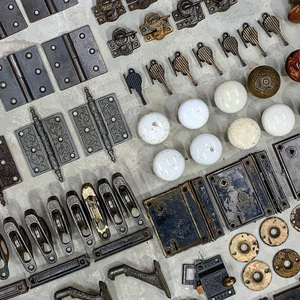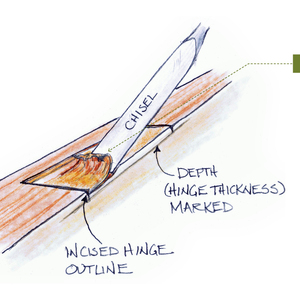Hi, what is the math like in electricians school? I dig the juice but hate the math! School starts tomorrow and since I am dyslexic and no math whiz is this just a bad idea? I already get around in carpentry alright. But to be a juice gal! Ducki
Discussion Forum
Discussion Forum
Up Next
Video Shorts
Featured Story

Dangerous electrical work and widespread misconceptions cause fires, deaths, and $1.5 billion in property damage annually.
Featured Video
Builder’s Advocate: An Interview With ViewrailHighlights
"I have learned so much thanks to the searchable articles on the FHB website. I can confidently say that I expect to be a life-long subscriber." - M.K.
Fine Homebuilding Magazine
- Home Group
- Antique Trader
- Arts & Crafts Homes
- Bank Note Reporter
- Cabin Life
- Cuisine at Home
- Fine Gardening
- Fine Woodworking
- Green Building Advisor
- Garden Gate
- Horticulture
- Keep Craft Alive
- Log Home Living
- Military Trader/Vehicles
- Numismatic News
- Numismaster
- Old Cars Weekly
- Old House Journal
- Period Homes
- Popular Woodworking
- Script
- ShopNotes
- Sports Collectors Digest
- Threads
- Timber Home Living
- Traditional Building
- Woodsmith
- World Coin News
- Writer's Digest


















Replies
Should be simple algebra, don't think electricians schools do any calculus or DE; heck, engineers don't even use calculus or differential equations anymore on paper with all the computer tools.
You definetely should not be afraid of basic equations such as E=IR, PF=kW/kVA, knowing how to multiply by square root of 2 for peak voltage vs. RMS, how to multiply by sqrt of 3 for 3 phase systems, etc. etc. , you'll probably be able to do those in your head after a while. Familiarity with spreadsheets can ease your life immeasurably for complex commercial systems. Have heard that some schools still require hand calculations vs spredsheet or preprogramed tools to assure understanding, but you'll never have to do the hand calculations in a professional life if you have a laptop.
Hope this helps some rather than frighten<G>??
Thanks for the reply. So, what's your advice on learn at home programs regarding electrical? Just got info from a correspondence school. I did do this once with motorcycle mechanics to learn my way around a bike. Seemed pretty simple but the doing is the real test. I was just thinking of options to getting the info. Of course live teachers have that life experience and personal spin. Still haven't made up my mind but I'm thinking next year might be a better time to start this adventure and for now take some carpentry classes. Ducki
Ask around for anybody who has gone to the school you have in mind, some are excellent, and of course the opposite is true.
DW swears by correspondence, she got her teaching BS via correspondence and it was nationally acredited and valid for any state's teaching certificate.
First before believing a correspondence company that says it is accredited with your state. Check with your states education department and see if this correspondence company and more importantly if the course accredited. Next check and see if qualifies with your states electrical licensing board what are the requirements to get the license.
Actually if someone applied for work with my co. and said they had an educ. thru a correspondence course I would probably look for the next applicant. I guess Sally Struthers hasnt made a believer out of me. Perhaps I am wrong but I am being honest.
Ahh, right, credibility. Guess this makes sense for this line of work. Went to the school again last night to talk to the instructor but he AND the entire class was MIA! Better call X-FILES! Actually what I decided to do was read a lot this year and find as many sparkys as I can talk to and prep for next year. Gonna take some carpentry classes and sharpen my skills. Thanks for the advice. Ducki
Sound like a plan. What books are you going to reading. Consider the books that they will be teaching out of. Not only that but practice your basic math skills ( + - X ÷) every day also. You want to know it so well you are faster then a calculator and just as accurate. It seem most schools won't let you use a calculator in school they want you to know how the math works.
If you are dyslexic and diagnosed as such, going to a shool in person and getting all the help that you can get, that schools have to accomodate you with by law, will be to your advantage.
That will permit you to be your best with the little help that you will require and they love such students as they help them look good on paper to the school examiners.
Being dyslexic will be an advantage because you WILL have to pay attention to details and double check yourself. That makes for better work.
If you go the route of correspondence/internet learning, work during the day in that field, to gain hands on experience.
I agree with Junkhound. If need be get a tutor to help you with the math or better yet make friends with some of your classmates who are math whizzes and get them to help you.
In the real world (as Junkhound said) electricians dont use alot of math. We have Electricalcs (calcs to determine wire size, voltage drop etc.) and we have all kinds of tables that have stuff prefigured out for you.
To get your license you will need to be able to figure out service sizing and other loads using the National Electric Code. These types of things can be learned by lots of practice tho.